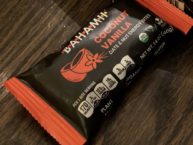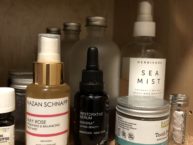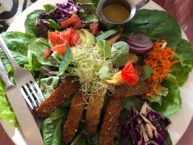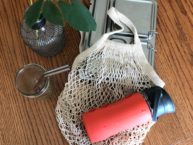Got a good gut feeling? Thank your gut inhabitants. Well, turns out that our gut is like our second brain, and the living thriving bacteria and microbes in our gut can not only affect our digestive health and immunity level but also play an impressive role when it comes to the quality of our moods. The gut bacteria has the ability to increase serotonin, a neurotransmitter that reduces anxiety and boosts our mood levels. Consumption of probiotics which includes kefir, saurkraut, kimchi, kombucha, natto, tempeh, dosa and miso, is one the hottest health trends on the rise. While this might seem like an interesting new trend, these mood, immune and overall health boosting fermented goodies have been around for ages as part of traditional cultural practices. Fermentation also happens to be one of the easiest and oldest way to preserve food products.
Here are a few reasons why it’s important to include fermented products as an essential part of your daily diet –
- To build immunity – Fermented food enhances your immune system which might reduce your chances of attracting flu, cold, skin breakouts etc. Click here to see Dr. Mercola talk about importance of probiotics and its effects on our immune and digestive system.
- For colon cancer prevention – Cancer cases are supposed to surge by 57% in the next 20 years according to CNN (read here). Opting for natural immunity and health boosters like kefir might serve as a good prevention strategy.
- To reduce and control IBS
- To boost mood levels – Good bacteria can boost mood and result in stronger emotional stability due to the increase of serotonin, a neurotransmitter that reduces anxiety.
- Weight control – Read here to learn more about how kefir and other fermented products can help you control your weight.
Also, antibiotics, illness, stress, environmental toxins etc. can take a toll on your good gut bacteria level and bring your immunity level down. Avoiding antibiotics (unless you really need it), controlling your stress, avoiding toxins, reducing processed food and adding prebiotics to your everyday diet along with probiotics can do wonders to boost your immunity. Prebiotics such as onion, garlic, chicory, dandelion feed the good bacteria starving the bad ones, which can help to maintain the health of our inner gut flora.
How to make Kefir –
Kefir is considered better than yogurt for its impressive bacteria profile with wider variety of strains and will actually help colonize your intestinal track (read here). The process of making kefir starts with adding these spongy little white cauliflower-like kefir grains to milk (coconut, goat, cow or any type of milk) and culturing it for 12- 24 hours. We got our Kefir grains from Culturesforhealth.com. The grains come in a dehydrated form with a light coating of milk powder on them. The grains need to be re-hydrated and re-energized by culturing them in milk for about 5 to 7 days. At first, the kefir looks more like buttermilk in consistency but starts to thicken up by day 6 and take the form of kefir. This is a pretty easy process and the video below explains it pretty well.
The kefir grains from culturesforhealth.com worked very well and the process was very easy to follow. A net strainer with a handle makes the straining process a lot easier than a nut milk bag so investing in it makes sense. The good thing about these grains is that they grow in size and thickness so you don’t need to keep re-buying the grains over and over again, which obviously is a real money saver. Finding a reputable website to buy kefir grains can be an anxiety inducing process considering the fact that it is made up of bacteria strains and yeast. If you know someone who makes kefir then you might want to borrow a few grains from them or you can by the grains online from sites such as culturesforhealth. Their whole website is dedicated to cultured products and the quality of their customer service is great. Hope the review and the information in this post encourages you to make your own kefir at home as a good belly treat.
Note – If you run out of milk and need to store the grains for a few days, try coating them with a thin layer of milk and store them in the refrigerator until you are ready to start your next batch. From my observation, starving the grains for a day or two makes them more active and result in better growth of the grains as well as better kefir (found that out by accident. Seems like they are just like any living being on earth).
Are cultured food products part of your diet? What is your favorite fermented food? Have a great week ahead
Further Reading –
“Let food be your medicine and medicine be your food.”
― Hippocrates
xx
Heel in Mint







